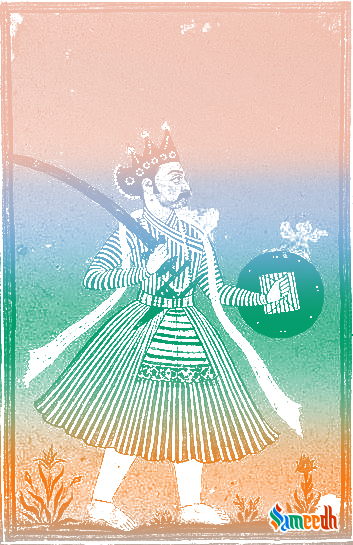This blog discusses the multi-faceted personality of Nakul and his importance in the Hindu mythology.

One of the five Pandavas, Nakul is known for his exceptional personality and skills that played a pivotal role in the epic of Mahabharat. This blog discusses the multi-faceted personality of Nakul and his importance in the Hindu mythology.
EARLY LIFE
Born to King Pandu’s second wife Madri
Nakul was one of the five Pandavas born to Madri and King Pandu through a boon blessed on Kunti by the Sage Durvasa. Kunti shared this boon with Madri, who was the second wife of King Pandu. Madri was blessed with two sons Nakul and Sahadev when she prayed to the Ashwini Kumars, the Hindu twin gods who are known for medicine, health and horsemanship. It is believed that Nakul was the most handsome of the Pandavas. They are also known as guardian deities in the culture and mythology of Hindu religion.
During his childhood, Nakul learnt many important warrior skills like horseriding, fencing, archery and swordsmanship by the most well-respected and pivotal characters in the epic of Mahabharat, Dronacharya.
LIFE EVENTS AND CONTRIBUTIONS TO SOCIETY
A Diplomat and A Warrior
During the exile of the Pandavas, he was successful in maintaining many different disguises to avoid any reveal of his identity. During the last year of the 13 yearlong exile, he took the identity of a stableman with the name, Granthika in the kingdom of the king Matsya. His skills as a horse-trainer came in very handy and helped him stay under cover during the last year of the exile and saving the Pandavas from any severe repercussions of losing their disguise during the exile of 13 years.
Nakul was known for his different skills and horse-keeping skills. One of his important skills was Diplomacy. He was known for being a skilled and excellent Diplomat. His skills in diplomacy did not stop him from excelling as a warrior during the war. He was one of the first warriors on the first day of the beginning of the epic war. In fact it was Nakul who defeated one of the most important warriors of the Kauravas, Duhdhshasana. He also led one of the seven groups of the whole army of Pandavas. It is called the Akshauhini.
LIFE AFTER MAJOR EVENTS
Post-War Nakul
After the conclusion of the war of Mahabharat, he was anointed as the King of North Madra. He played a successful role of a king to his kingdom after the war. When the time of retirement arrived, he joined the Pandavas and started his journey towards the Himalayas to live as a pilgrim without any wealth and belongings. However, he did not make it to heaven. According to Yudhisthir, he could not reach heaven due to his pride for his natural beauty. His exceptional looks brought him pride which stopped him from reaching heaven.
LIFE LESSONS
Nakul’s Excellence
The mention of Nakul comes for more than just his handsome looks. He was known for excelling in most of the skills of a warrior and diplomacy. During the war he fought against Karna, the most celebrated archer for a long time before ultimately losing because of Karna’s exceptional skills. He was successful in breaking Karna’s bow four times before losing the battle against him.
Nakul’s Courage, Personality and Skills are an inspiration
The story and character of Nakul brings notice to the importance of hard-work and focus on developing dependable skills in the game of life. The story of Mahabharat, brings light to how his skills played an important role in weakening the army of Kauravas and victory against them.
To read about more such great souls, keep reading blog posts on Sameedh.
